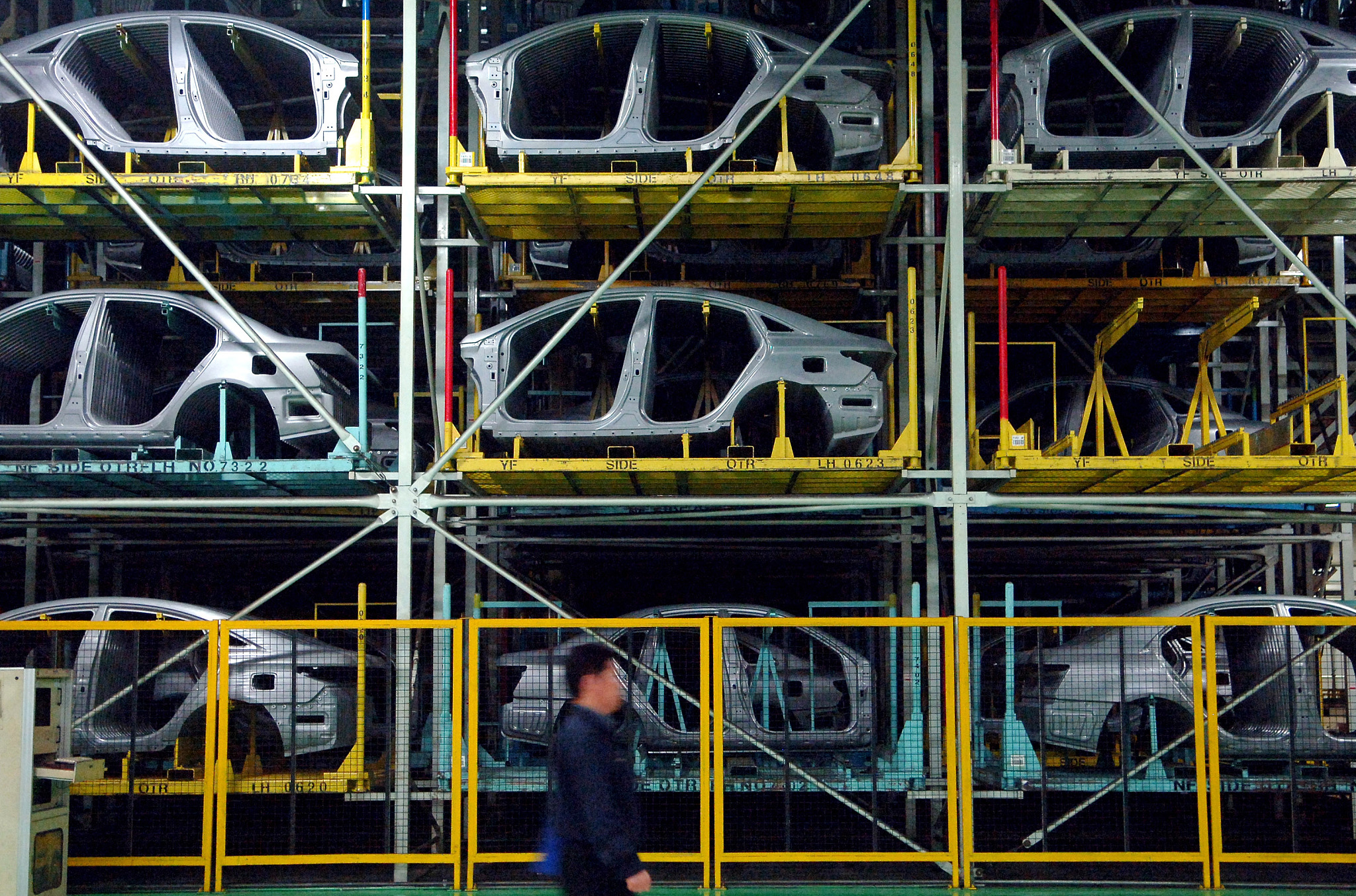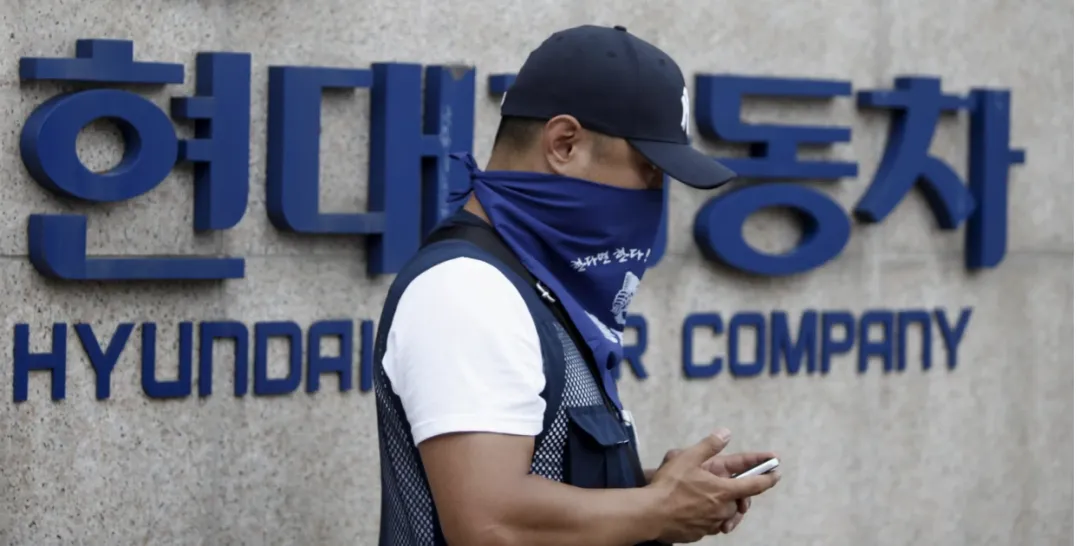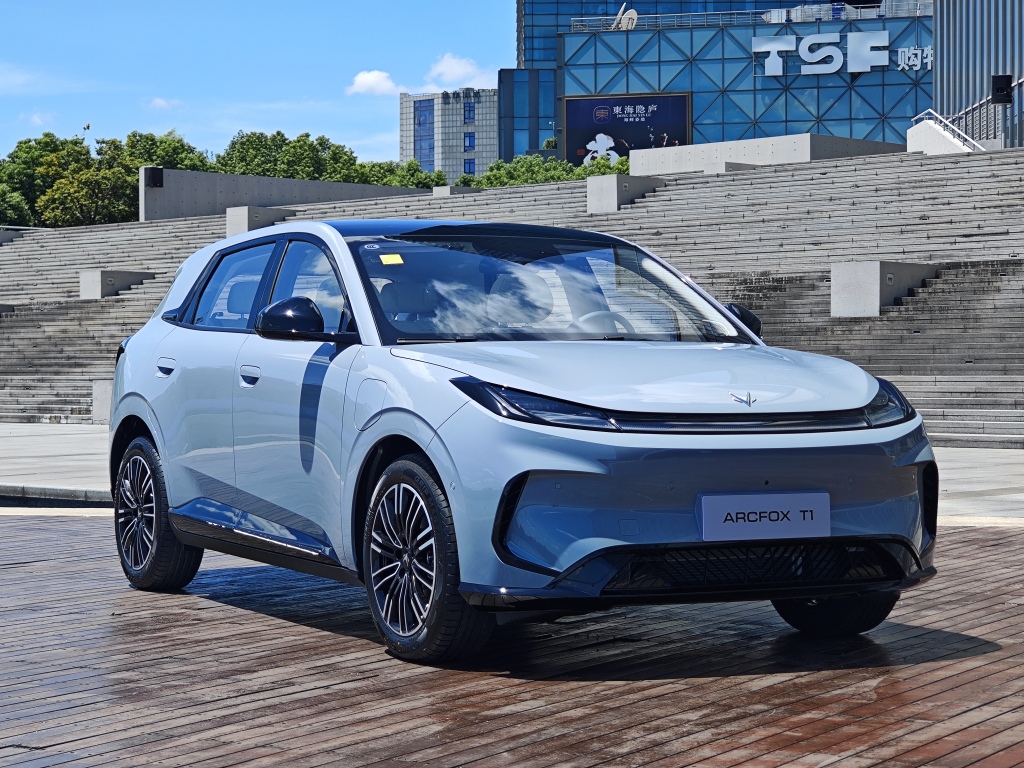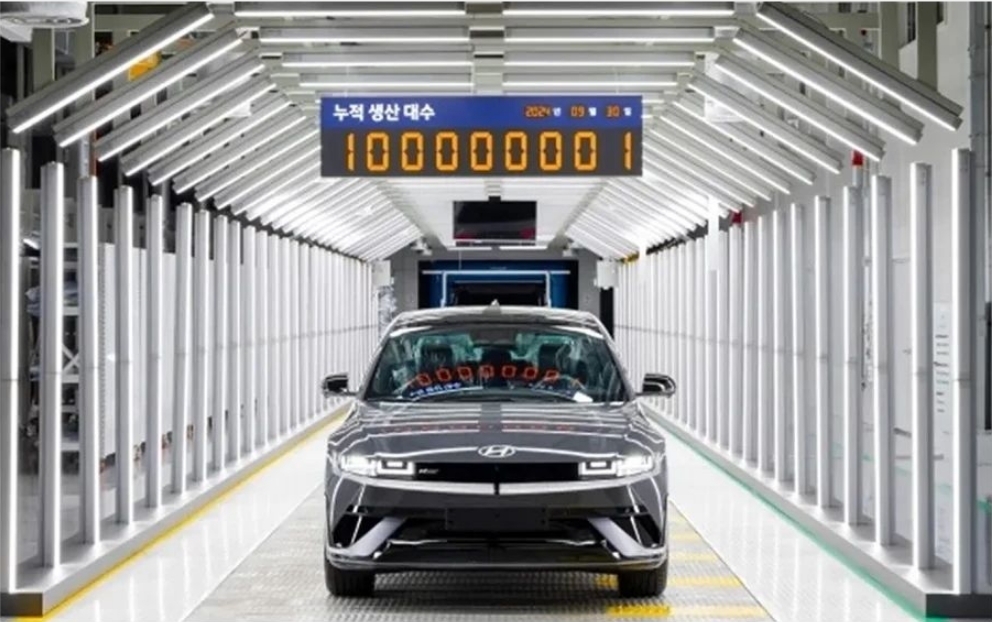
As the presence of Chinese new energy vehicles spreads from Loyang Prefecture to the streets of Chumphon, foreign competitors who have been observing in the shadows are now beginning to make their moves.

Yashan, South Korea, car frames at a factory owned by Hyundai Motor Company.
Recently, foreign media reported that South Korean automaker Hyundai has received approval from Thailand's Board of Investment (BOI) to invest 10 billion Thai baht in assembling electric vehicles and power batteries in Thailand.
Hyundai is set to team up with Thonburi Automotive Assembly Plant in Samut Sakhon, located in southern Bangkok, to produce vehicles. This is not Hyundai's first foray into the Southeast Asian electric vehicle sector; in November last year, they established an innovation center in Singapore, where Hyundai Ioniq 5 and Ioniq 6 electric vehicles are being produced.
Attracting Hyundai to invest locally is part of Thailand's EV3.5 project, aimed at boosting manufacturing investments in the entire Thai electric vehicle ecosystem, including vehicle assembly, battery production, components, and the establishment of a charging network. The project will provide incentive policies for eligible car manufacturers and subsidies for consumers purchasing electric vehicles.
According to the plan, electric vehicles will make up 30% of Thailand's total car production by 2030. Thailand's Board of Investment revealed that so far, 18 car manufacturers from China, Japan, and Europe have either begun or planned to manufacture electric vehicles in Thailand, with the total value of investments made by these manufacturers in Thailand's electric vehicle supply chain reaching 80 billion Thai baht.
According to Counterpoint Research, Thailand accounted for 55% of all electric vehicles sales in the ASEAN region in the first quarter of this year, making it the core electric vehicle market in ASEAN.
Regarding Hyundai's investment, Secretary General of Thailand's Board of Investment, Narit Therdsteerasukdi said, "Hyundai's entry into Thailand's electric vehicle industry is a very positive development, affirming Thailand's attractiveness as a manufacturing hub and a key market. Thailand’s strong existing supply chain will enable Hyundai to source at least one-third of raw materials and components locally, supporting the local industry."
When discussing local procurement, Narit Therdsteerasukdi mentioned Chinese car manufacturers. He said, "Some car manufacturers—especially those from China—although they assemble cars in Thailand, are not interested in sourcing parts locally." He believes that the shrinking market for gasoline and diesel cars, coupled with the influx of subsidized electric vehicles, has led to the closure of over a dozen component manufacturers, and the situation worsens as Chinese car manufacturers do not procure locally. On the other hand, savvy Chinese entrepreneurs are reluctant to spend extra money on local parts when they can receive subsidies through CKD assembly methods, as China's supply chain quality and cost competitiveness are more advantageous.
In response, Thai authorities have devised graduated policies to boost the enthusiasm of foreign car manufacturers in procuring parts locally.
On July 30th this year, Thailand Electric Vehicle Committee approved the latest measures to support the transformation of the electric vehicle industry, reducing the consumption tax rate for hybrid electric passenger cars and passenger cars with a seating capacity not exceeding 10 people.
Currently, seven automakers with operations in Thailand have submitted investment promotion applications, planning to invest in hybrid electric cars. Among them, four are Japanese automakers like Toyota and Honda, and three are Chinese manufacturers such as Great Wall Motors, MG Motor, and Chery.
However, to qualify for preferential policies for hybrid electric cars, they must meet the following four conditions:
1. Carbon dioxide (CO2) emissions must not exceed 120 grams per kilometer. For emissions not exceeding 100 grams per kilometer, the consumption tax rate is 6%. For emissions between 101-120 grams per kilometer, the tax rate is 9%;
2. Additional actual investment is required. From 2024 to 2027, Thai car manufacturers or affiliated companies must invest no less than 3 billion Thai baht;
3. Hybrid electric car models applying for incentives must use locally produced or assembled key components, batteries produced locally since 2026, and other key components since 2028;
4. Hybrid electric cars applying for incentives must have at least four intelligent safety systems.
The third condition restricts car manufacturers who do not source parts locally from receiving subsidies.
As the dominant position of Japanese cars in Thailand begins to waver, Chinese, Korean, and European cars see this region as a new land to expand their businesses. From 2018 to 2023, the market share of Japanese cars in Thailand remained above 85%, but by 2023, it had dropped to 78%. During the same period, Chinese cars increased from 2% to 11%.
It is foreseeable that more electric vehicle competitors will enter Thailand within two years or even sooner, but the threat from Chinese electric vehicles remains manageable. According to data from Southeast Asian consulting firm Dataxet, the top ten most mentioned car brands in Thailand are BYD, Changan, Tesla, EAON, Great Wall, MG, NIO, Hyundai, Honda, and "Others." It is evident that except for Tesla, the others are not yet posing a threat to Chinese brands in the Thai market.


